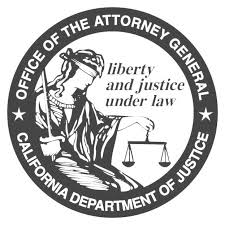Civil liberties or personal freedoms are personal guarantees and freedoms that the government cannot abridge, either by law or by judicial interpretation, without due process. Though the scope of the term differs between countries, civil liberties may include the freedom of conscience, freedom of press, freedom of religion, freedom of expression, freedom of assembly, the right to security and liberty, freedom of speech, the right to privacy, the right to equal treatment under the law and due process, the right to a fair trial, and the right to life. Other civil liberties include the right to own property, the right to defend oneself, and the right to bodily integrity. Within the distinctions between civil liberties and other types of liberty, distinctions exist between positive liberty/positive rights and negative liberty/negative rights.

Due process is the legal requirement that the state must respect all legal rights that are owed to a person. Due process balances the power of law of the land and protects the individual person from it. When a government harms a person without following the exact course of the law, this constitutes a due process violation, which offends the rule of law.
In Canadian and New Zealand law, fundamental justice is the fairness underlying the administration of justice and its operation. The principles of fundamental justice are specific legal principles that command "significant societal consensus" as "fundamental to the way in which the legal system ought fairly to operate", per R v Malmo-Levine. These principles may stipulate basic procedural rights afforded to anyone facing an adjudicative process or procedure that affects fundamental rights and freedoms, and certain substantive standards related to the rule of law that regulate the actions of the state. The degree of protection dictated by these standards and procedural rights vary in accordance with the precise context, involving a contextual analysis of the affected person's interests. In other words, the more a person's rights or interests are adversely affected, the more procedural or substantive protections must be afforded to that person in order to respect the principles of fundamental justice. A legislative or administrative framework that respects the principles of fundamental justice, as such, must be fundamentally fair to the person affected, but does not necessarily have to strike the "right balance" between individual and societal interests in general.

R v Morgentaler, [1988] 1 SCR 30 was a decision of the Supreme Court of Canada which held that the abortion provision in the Criminal Code was unconstitutional because it violated a woman's right under section 7 of the Canadian Charter of Rights and Freedoms ("Charter") to security of person. Since this ruling, there have been no criminal laws regulating abortion in Canada.

Vriend v Alberta [1998] 1 S.C.R. 493 is an important Supreme Court of Canada case that determined that a legislative omission can be the subject of a Charter violation. The case involved a dismissal of a teacher because of his sexual orientation and was an issue of great controversy during that period.
Section 7 of the Canadian Charter of Rights and Freedoms is a constitutional provision that protects an individual's autonomy and personal legal rights from actions of the government in Canada. There are three types of protection within the section: the right to life, liberty and security of the person. Denials of these rights are constitutional only if the denials do not breach what is referred to as fundamental justice.

Section 16 of the Canadian Charter of Rights and Freedoms is the first of several sections of the Constitution dealing with Canada's two official languages, English and French. Section 16 declares that English and French are the official languages of Canada and of the province of New Brunswick.
Section 23 of the Canadian Charter of Rights and Freedoms is the section of the Constitution of Canada that guarantees minority language educational rights to French-speaking communities outside Quebec, and, to a lesser extent, English-speaking minorities in Quebec. The section may be particularly notable, in that some scholars believe that section 23 "was the only part of the Charter with which Pierre Trudeau was truly concerned." Trudeau was the prime minister who fought for the inclusion of the Charter of Rights in the Constitution of Canada in 1982.
Section 17 of the Canadian Charter of Rights and Freedoms is one of the provisions of the Charter that addresses rights relating to Canada's two official languages, English and French. While the section 17 right to use either language within the Parliament of Canada repeats a right already anchored in section 133 of the Constitution Act, 1867, section 17 also guarantees the right to use both languages in the legislature of New Brunswick, the only officially bilingual province under section 16 of the Charter.

Singh v Canada , [1985] 1 S.C.R. 177 is a 1985 case of the Supreme Court of Canada.
Jones v New Brunswick (AG) (1974), [1975] 2 S.C.R. 182 is a leading decision of the Supreme Court of Canada on the protection of language rights under the Canadian Constitution. The Mayor of Moncton, Leonard Jones, challenged the federal Official Languages Act, which made both French and English the official languages of the institutions of the federal government. Jones argued that the subject matter of the law fell outside the constitutional jurisdiction of the federal government.
Section 20 of the Canadian Charter of Rights and Freedoms is one of the sections of the Constitution of Canada dealing with Canada's two official languages, English and French. Along with section 16, section 20 is one of the few sections under the title "Official Languages of Canada" that guarantees bilingualism outside Parliament, legislatures and courts. This also makes it more extensive than language rights in the Constitution Act, 1867. Section 20's specific function is to establish a right to English and French services from the governments of Canada and New Brunswick.
Section 19 of the Canadian Charter of Rights and Freedoms is one of the provisions of the Constitution of Canada that addresses rights relating to Canada's two official languages, English and French. Like section 133 of the Constitution Act, 1867, section 19 allows anyone to speak English or French in federal courts. However, only section 133 extends these rights to Quebec courts, while section 19 extends these rights to courts in New Brunswick. New Brunswick is the only officially bilingual province under section 16 of the Charter.
Section 18 of the Canadian Charter of Rights and Freedoms is one of the provisions of the Constitution that addresses rights relating to Canada's two official languages, English and French. Like section 133 of the Constitution Act, 1867, section 18 requires that all statutes and other records made by the Parliament of Canada must be available in both official languages. Section 133 places a similar obligation on the legislature of Quebec, and this is reaffirmed by section 21 of the Charter. Section 18 of the Charter places a similar obligation on the legislature of New Brunswick. New Brunswick is the only officially bilingual province under section 16 of the Charter.

Duke v R [1972] S.C.R. 917 was a decision by the Supreme Court of Canada on the Canadian Bill of Rights, concerning the right of an accused to make full answer and defence to a criminal charge.
The phrase law of the land is a legal term, equivalent to the Latin lex terrae, or legem terrae in the accusative case. It refers to all of the laws in force within a country or region, including statute law and case-made law.

Société des Acadiens et Acadiennes du Nouveau-Brunswick Inc v Canada2008 SCC 15 is a Canadian constitutional law case, dealing with the language standards imposed by section 20(2) of the Charter of Rights and Freedoms on the Royal Canadian Mounted Police pursuant to their duties as New Brunswick's police force.





